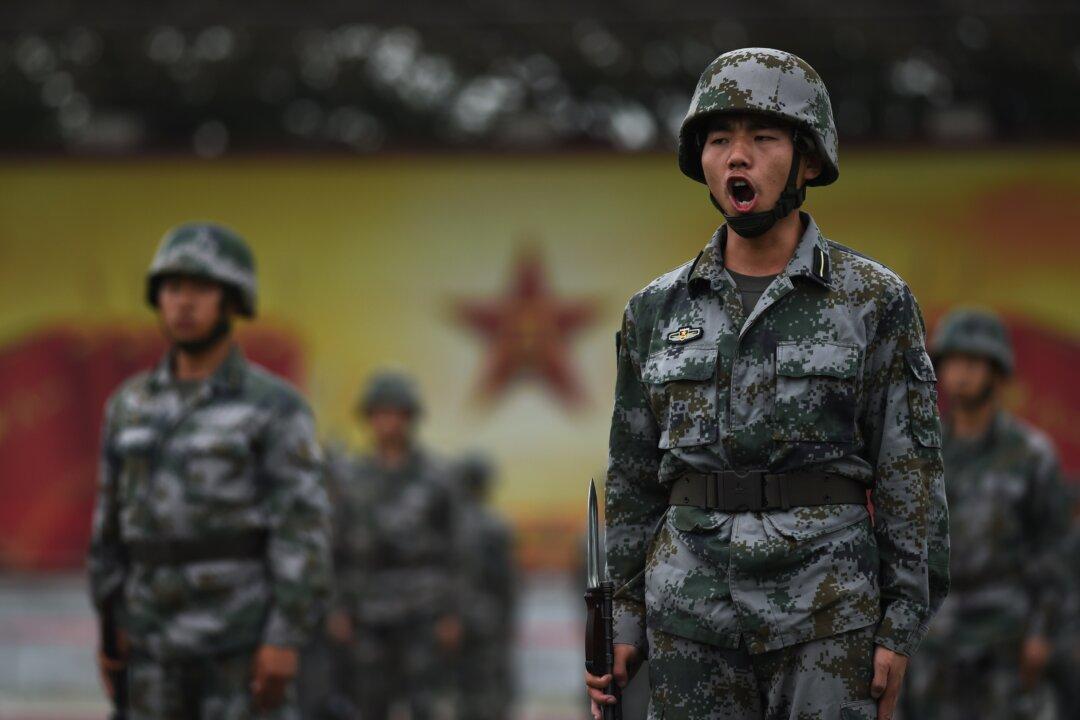Donald Trump is a big anomaly in American politics. During the battle of the presidential candidates over more than half a year, Trump transformed from a black horse at the outset to become the leader of the pack in the primaries of the Republican presidential nomination, triggering waves of “anti-Trump campaigns” in the whole of the United States.
This billionaire who vows to be the president of the United States is increasingly an attraction on the global stage.
Breaking the “politically correct” discourse that the U.S. elites took four to five decades to establish, Trump’s impudent speech soothes the nerves of a large number of disgruntled Americans. He is anti-immigrant, anti-global trade, anti-Islam, demands to slash trade with China, and wants to construct the “Great Wall” of the United States to stop illegal immigrants from Mexico.
Trump has an unbridled tongue, which earns him criticism and labels such as “racist,” “sexist,” “Nazi,” and “populist,” among others. Most recently, he said publicly that Japan and South Korea should possess nuclear weapons to protect their own safety.
However, Trump not only stays ahead in various polls, he has indeed received more than 700 votes in the Republican Party, very close to the party’s nomination requirement of 1,200 votes. We might really see Trump become a U.S. presidential candidate, and some people forecast, not without pessimism, that we might just see a crazy president lead the United States into a new era.
In my opinion, the Trump phenomenon is a reaction to the past two decades of globalization. It represents a “native” suspicion and wariness over the unknown outside world.
Over the past decade, I have been living in a small town in the eastern United States with a population of only 50,000 to 60,000 people. Starting about three years ago, residents of this small town began a movement to support local businesses and shops. Residents reminded each other and got everyone to buy from the small local shops and to patronise restaurants run by locals.
The effect was obvious. Chain stores such as McDonald’s and Walmart saw their sales stagnate, while the businesses of small local shops prospered.
This trend did not only appear in the small town where I live. Even in large cities, the situations are similar. In fact, it has also occurred in the past three decades in Europe, especially in Western Europe.
Europeans reminisce about the past; especially when they cannot feel the pulse of the future, the “native” complex breaks out. From this perspective, Trump can in fact be viewed as the “radical nativism” of the United States. He is very similar to the nativism (or “radical nativism”) in Hong Kong, Japan, Taiwan, Germany, and France.
However, the situation in the United States is probably the most troubling of all to the world, because the United States is more than a country; it is also the enforcer of the modern order and the only superpower.
Once the United States returns to the era of the Monroe Doctrine, or the isolationist era, which it did during the early decades of the 20th century, what becomes of the world? No one knows. One thing is for sure: we can expect great chaos to arise in some regions of the world.
The world is both material and spiritual. The first phase of globalization is now more or less completed. If mankind is to move towards future integration, the world will again experience a huge convergence of values and ideologies.
The self-cognition of man needs to elevate to the realm of all mankind, forming true “universal values” recognised by all. In this second phase, the active participants will be the rule-makers while those who resist are likely to become islands of the future new world.
Perhaps the establishment of a new world must first see the collapse of the old order. Will Trump play the role of urging the collapse of the old order?
Nobody is a prophet. Change is always painful, and whether it’s for human morality or for democracy and liberty, going through the painful trial is inevitable. Only those things that pass the test can truly become the new universal principles of human values.
Edited by Sally Appert.
Zang Shan is an International affairs analyst specializing in U.S. and China affairs.




